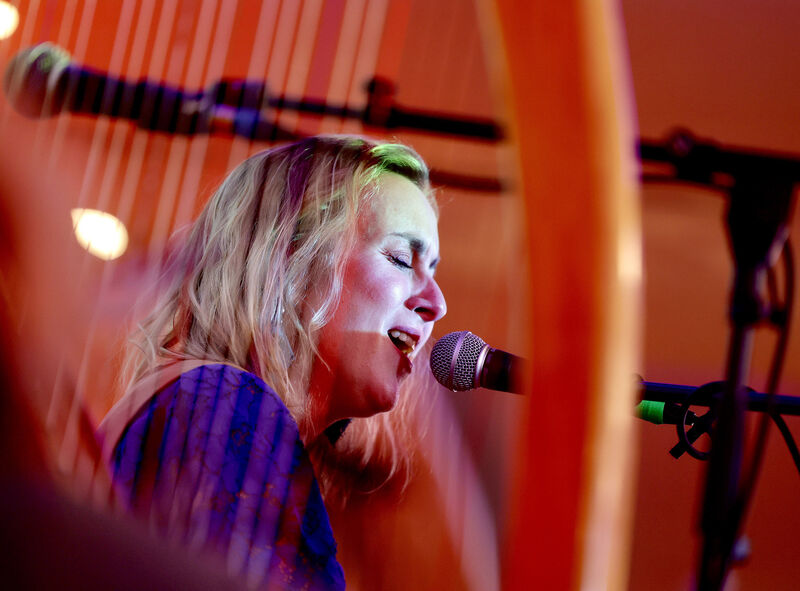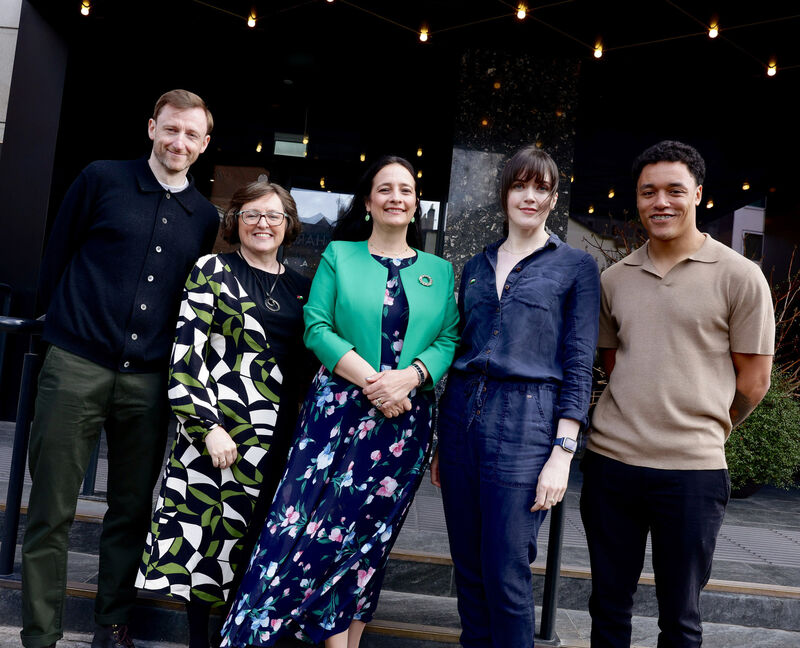Artists receiving a basic income of €325 a week from the State are able to invest more time and money in their art, and working fewer hours outside their creative field to supplement their income, a new report has found.
Furthermore, those artists in receipt of the Government’s basic income scheme are suffering less from depression and anxiety.
Arts Minister Catherine Martin launched the first year’s impact assessment of the Basic Income for the Arts pilot scheme on Monday, and said she was regularly approached by artists participating in the scheme and their feedback was “unfailingly positive”.
“That is why I would like see this scheme expanded to more and more artists,” she said. “The research my department is doing during the pilot will be key in providing a strong evidence base for its continuation.”
As part of the scheme, 2,000 eligible artists and creative arts workers were selected at random out of more than 9,000 applicants to receive €325 a week. This pilot scheme was launched for an initial three-year-period.

A further 1,000 people who applied were part of the “control” group. They do not receive the weekly payment but both this control group and the recipients were asked to provide data to the Department of Arts, which helps determine the impact of the scheme.
This impact assessment survey found recipients of the payment spend on average almost eight hours more a week on their creative practice than the control group.
Recipients invested €550 more a month in their practice on the likes of equipment and materials, advertising and marketing, workspaces and work travel.
They were 15 percentage points less likely to have been unable to work in the arts compared to the control group, and 13 points less likely to name low pay as a reason for not being able to work in the arts.
They were 18.8 percentage points less likely to have difficulty making ends meet, and eight points less likely to have experienced anxiety recently.
The group in receipt of the basic income were more likely be able to sustain themselves through arts alone compared to the control group, and were also more likely to have completed new works in the previous six months.
The report added no statistically significant impacts were found on the prevalence of unpaid work, the average price of commissions, the likelihood of applying for arts funding or the prevalence of artistic residences under the scheme.
The survey of participants in receipt of the weekly payment reported positive experiences among them since they started getting this income.

One participant said: “I have grown in ways I never expected. I view myself as an artist, and feel I am valued in my society, that I can contribute valid ideas, that I have something to share, that I am worthwhile.
Another said: “We are told again and again that pursuing the arts full-time is a bad idea: if you are not from a family or background where there are artists, it can feel like a very risky choice. The [basic income] still feels, every month when it lands, like a release from that risk.”
On the other hand, control group participants also reported their own experience. One said: “As a practising artist, I am just about able to survive, but it is very much a hand-to-mouth existence.”
Another in the control group said they had appreciated any help they could get but retraining and practising overseas was the “most logical” thing they could do next.
Ms Martin added: “While it is still relatively early in the research phase of the Basic Income for the Arts pilot scheme, it is clear that the support is having a positive impact.
“Artists in receipt of the support are typically able to devote more time to their art, have a boost to their wellbeing through greater life satisfaction and reduced anxiety, and are protected from the precariousness of incomes in the sector to a greater degree than those who are not receiving the support.”

